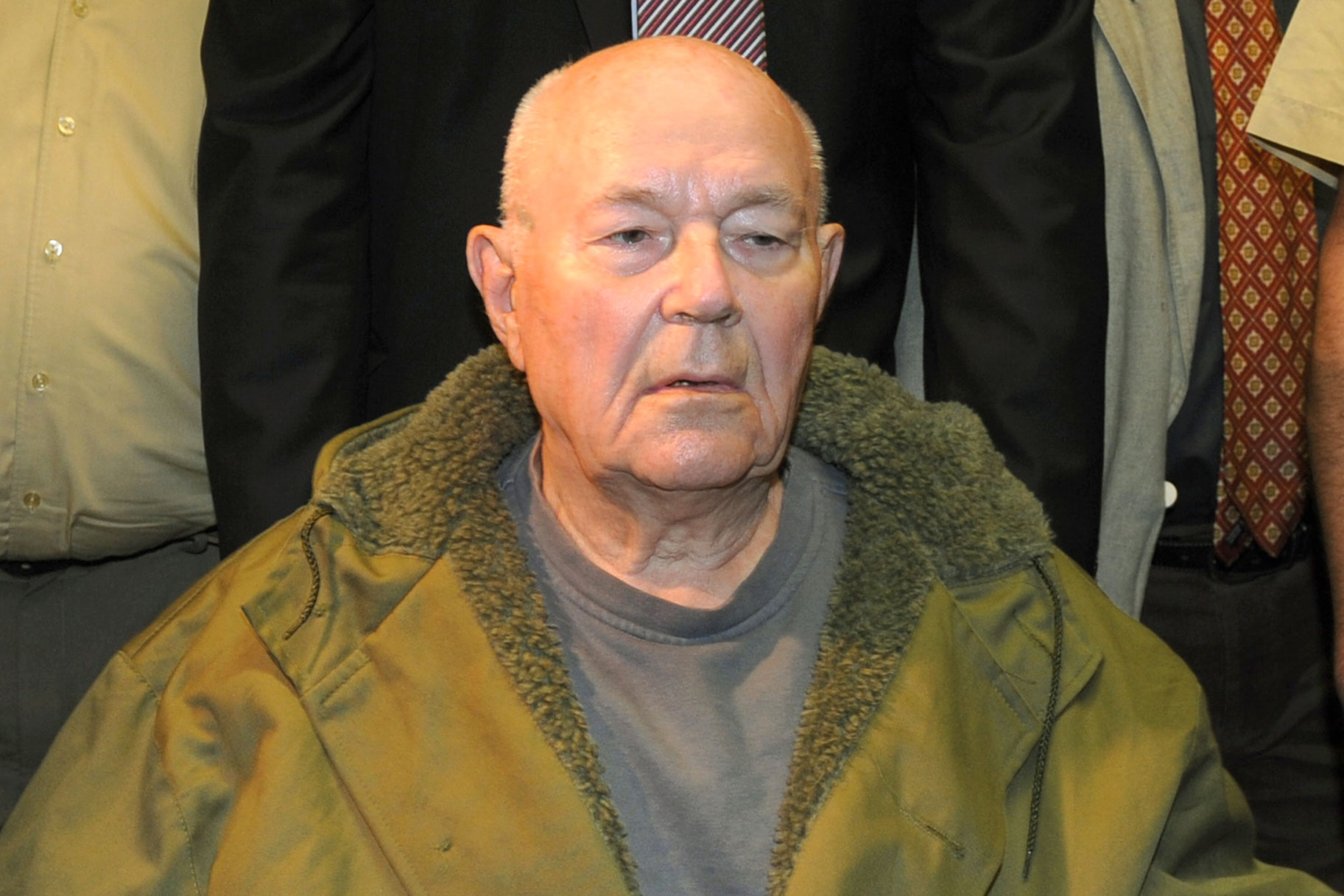Create a free profile to get unlimited access to exclusive videos, breaking news, sweepstakes, and more!
What Happened To John Demjanjuk From Netflix's 'The Devil Next Door'?
John Demjanjuk, the Cleveland grandfather who was accused of being Nazi war criminal, Ivan the Terrible, is the focus of Netflix's latest docuseries "The Devil Next Door." But what happened to the Ohio man and his family after his conviction was tossed out in Israel?

John Demjanjuk, an Ohio grandfather, spent the final decades of his life dodging accusations he was notorious Nazi war criminal and concentration camp guard known as Ivan the Terrible.
But was the Cleveland autoworker really the mass-murdering bloodthirsty Nazi death camp guard? Or was he a hard working family man and Ukrainian refugee who escaped the horrors of World War II to live the American dream, as his family proclaimed?
Netflix’s new docuseries “The Devil Next Door,” which premiered Monday, tackles these uncomfortable — and unanswered — questions, and attempts to shed light on the murky life and legacy of Demjanjuk.
Demjanjuk, who had claimed he was a Ukrainian prisoner of war, became a naturalized American in 1958, changed his name from Ivan to John, forged a career as an autoworker, and started a family, according to Cleveland.com.
Demjanjuk lived with his wife and children in relative anonymity until 1986, when he was accused by international authorities of being Nazi war criminal Ivan the Terrible, a gas chamber operator at Treblinka, a concentration camp in German-occupied Poland where nearly a million people are believed to have perished, according to the New York Times.
In 1987, Demjanjuk was extradited to Israel, where he stood trial. During his case’s proceedings, which featured the gut wrenching testimonies of several Holocaust survivors and their families, prosecutors had argued Demjanjuk had operated the diesel engines which pumped carbon monoxide into the concentration camp’s gas chambers.
The case had largely hinged on the S.S. identity card of “Ivan the Terrible,” whose picture bore a striking resemblance to Demjanjuk. Prosecutors alleged Demjanjuk was the sadistic concentration camp butcher, who was known for slicing off the ears and noses of his prisoners with a sword, the Times also reported.
Demjanjuk was found guilty and sentenced to hang in 1988. His conviction was ultimately tossed out by the Israeli government, after new evidence surfaced that indicated Ivan the Terrible may have been a different Ukrainian national named Ivan Marchenko, according to the Times. Demjanjuk returned to the U.S., but was again deported in 2009 after Germany charged him in a new case as an accessory to murder of nearly 28,000 Jewish prisoners at Sobibor, another German extermination camp in occupied Poland, according to the Guardian.
He later stood trial in Germany, where he was found guilty, but had appealed the sentence.
"He's slipping,” Demjanjuk’s son-in-law Ed Nishnic told the Associated Press prior to his deportation. “He's not well," Nishnic said. "There are avenues that can be taken to prevent that. That would be the last thing we would like."
Demjanjuk, whose citizenship had been revoked by the U.S. government, died stateless in a German nursing home in 2012. He had been fighting the ruling in an appeals court at the time of his death. He was 91.
However, Demjanjuk’s family, who had always claimed he was a Ukrainian prisoner of war, and that the accusations were simply a case of mistaken identity, had fought vigorously to prevent his deportation to Germany, defended him, and stood by his side until his death.
“History will show Germany used him as a scapegoat to blame helpless Ukrainian P.O.W.’s for the deeds of Nazi Germans,” his son John Demjanjuk Jr. told the Times.
The man’s son also described his father as “a victim and a survivor of Soviet and German brutality” and called the charges in Germany a “political farce” in a 2012 opinion article authored for the Kyiv Post, a Ukrainian English language newspaper.
“At his advanced age and poor health he could not survive another legal process,” he wrote. “As Nazi Germany committed crimes against humanity by killing a forgotten several million Soviet POW’s by a tortuous starvation and diseased death, today’s Germany intentionally chose such a surviving POW as a scapegoat.”
The family has largely disappeared from the public spotlight since their father’s passing in 2012.















